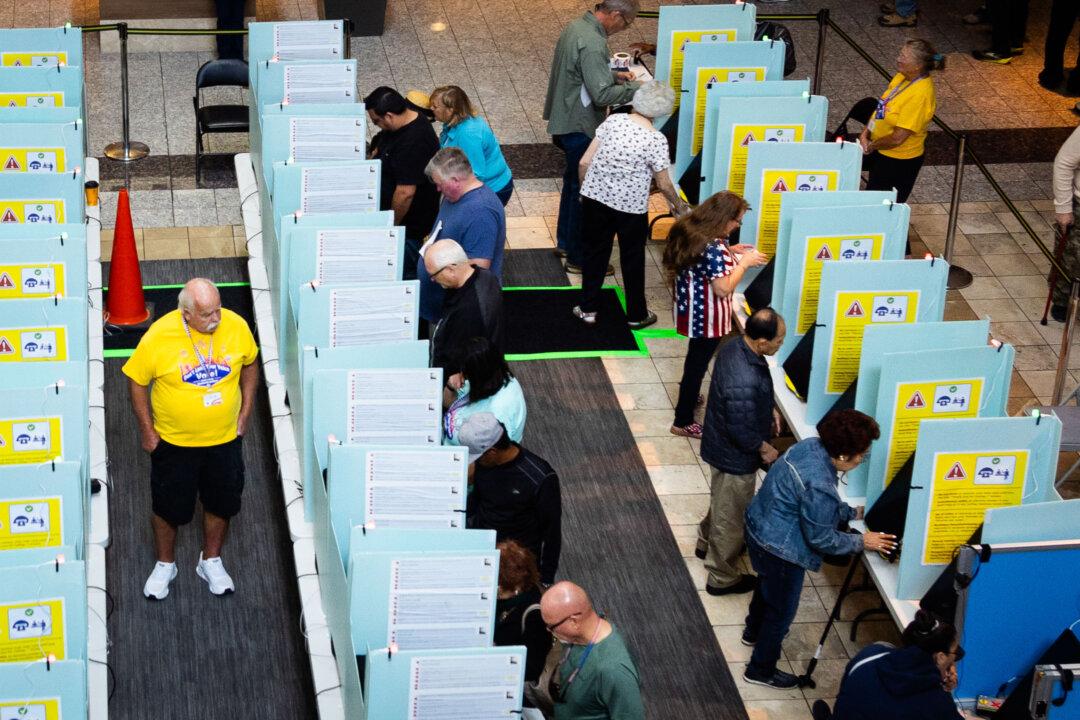With about 23 million early ballots returned, more Republicans appear to be voting early—with just under two weeks to go before the Nov. 5 election.
Former President Donald Trump has encouraged his supporters in recent months to head to the polls early, saying on Dan Bongino’s podcast last week, “I am telling everyone to vote early.” That’s somewhat of a reversal from 2020, when Trump often questioned mail-in ballots and early voting amid the COVID-19 pandemic.





